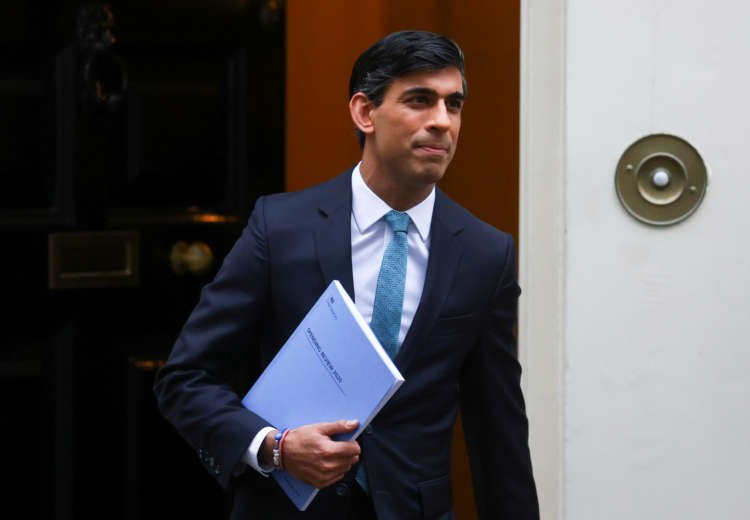Billions of pounds in the red, UK budget to have greenish hue
Published by linker 5
Posted on February 17, 2021
4 min readLast updated: January 21, 2026

Published by linker 5
Posted on February 17, 2021
4 min readLast updated: January 21, 2026

By David Milliken
LONDON (Reuters) – British finance minister Rishi Sunak’s annual budget on March 3 is set to have a green tinge, even as the country goes hundreds of billions of pounds into the red to fund its response to the coronavirus pandemic.
Sunak will move forward with plans to launch Britain’s first “green” government bonds – designed to finance environmentally friendly investments – and might also nudge the Bank of England to focus more on climate change.
But any progress on carbon taxes – endorsed by the International Monetary Fund in October – is likely to be slow as Sunak grapples with how best to close a 400-billion-pound ($556 billion) budget deficit, the largest since World War Two.
Britain is hosting a major United Nations environmental summit, COP 26, in November and Sunak told other finance ministers last week that he wanted action on climate change to be a major theme of Britain’s chairmanship of the G7 this year.
Philip Dunne, the Conservative chair of the British parliament’s Environmental Audit Committee, said Sunak should use the budget to make progress on a government promise to reduce net carbon emissions to zero by 2050.
“The government has a golden opportunity from COP26 to be able to start showing some international leadership on these issues,” he said.
In a report published on Wednesday, the committee urged Sunak to lower the 20% rate of value-added tax on domestic energy efficiency projects and increase incentives to buy electric cars.
The finance ministry should also start “scoping” work on new taxes on carbon emissions, and aim to have concrete proposals ready before the end of the year, Dunne said.
Britain has taken a piecemeal approach to environmental taxes. Duty on vehicle fuel has been frozen since 2012, and household energy bills have long benefited from a reduced rate of VAT.
But with a budget deficit of 130 billion pounds expected to remain after the economy recovers from the short-term shock of the COVID pandemic, according to U.S. bank Citi, Sunak will be on the hunt for new revenue.
GREEN GILTS
In the short term, one thing Sunak has committed to is the launch of so-called “green” gilts as part of 2021/22 borrowing plans which will be announced on March 3. The scale of the green issuance and the maturity of the bonds is not yet known.
Britain has lagged behind other European countries in issuing this type of debt, in part because the government’s debt office feared it would have to offer higher interest rates than for normal bonds, which are more liquid.
However, Germany sold green bonds last year at a rate lower than conventional debt, and the global market is rapidly gaining scale with around $300 billion of issuance last year.
For Simon Youel, head of policy at campaign group Positive Money, green bonds are partly a symbolic gesture.
“There’s no reason why ordinary gilts can’t be funding green infrastructure,” Youel said. But there would be benefits to bringing more transparency about what the government views as green investment, he said.
A bigger concern for Positive Money is the Bank of England, which the campaign group says has been too reluctant to nudge businesses in a more carbon-neutral direction.
Sunak should use his annual review of the BoE’s remits to make it take full account of the government’s environmental goals, and to sell its holdings of bonds issued by oil and gas companies, Youel said.
The BoE made the purchases as part of a stimulus plan launched at the height of the pandemic. It has since said it would be wrong to blacklist particular firms.
This year the BoE will for the first time require banks and insurers to look formally at risks they face from climate change and publish results in early 2022.
($1 = 0.7188 pounds)
(Reporting by David Milliken; Editing by Mark Heinrich)
Explore more articles in the Top Stories category











